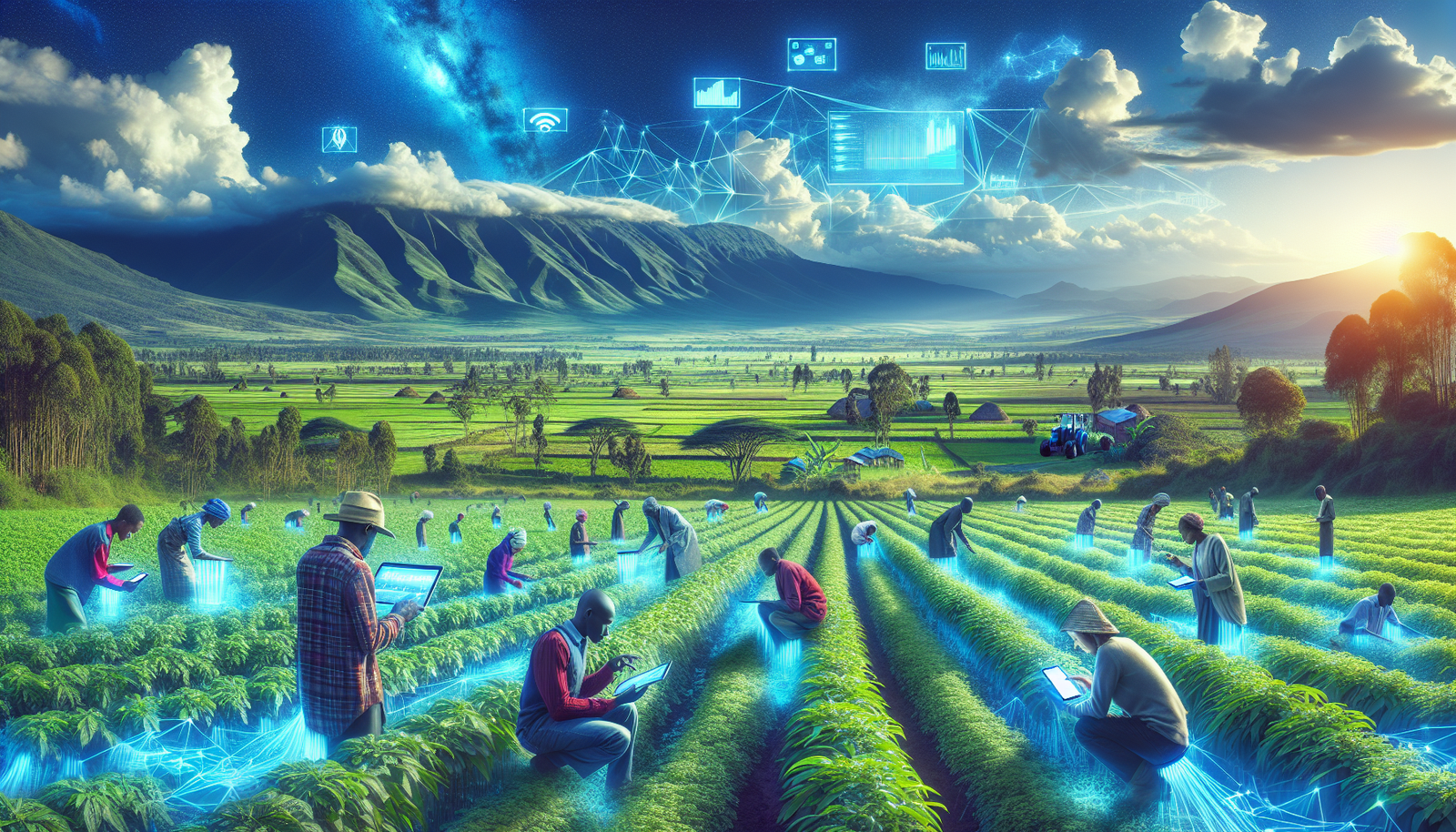The integration of Artificial Intelligence in agriculture is radically transforming farming practices in Kenya. Smallholder farmers are adopting advanced technologies, thereby boosting their production while optimizing available resources. Unprecedented technological support helps overcome challenges related to food security and changing climatic conditions. Each innovation, whether drones for crop monitoring or data analysis tools, simplifies and refines the cultivation process. For Kenyan farmers, each advancement represents an opportunity to raise yields to unprecedented levels.
Emerging Technologies in Kenyan Agriculture
Kenya is experiencing a true agricultural revolution thanks to the integration of artificial intelligence (AI) and advanced technologies. Local companies, such as FarmWorks, have raised significant funds to develop digital solutions aimed at improving productivity. This type of innovation provides an adequate response to the challenges faced by farmers, particularly in rural areas.
Use of Drones for Precision Agriculture
Drone technology has emerged as a key tool in modern agriculture. These devices fly over farms to monitor crops, detect diseases, and spray pesticides. Thanks to sophisticated sensors, the collected data allows for interventions to be adjusted according to the specific needs of the crops, optimizing overall yield.
AI Solutions for Smallholder Farmers
Initiatives like those led by Maryanne Gichanga focus on small farmers. By providing suitable AI devices, these solutions help producers maximize their yield. These tools facilitate decision-making regarding farming methods and resource use.
Fertilizers and Hybrid Seeds: Modern Practices
An ongoing project in western Kenya is assessing the impact of using fertilizers and hybrid seeds on yields. The results highlight the effectiveness of fertilizers in increasing harvests, allowing farmers to benefit from more abundant crops and better yields.
Climate Adaptation: Smart Agriculture
Scientists are applying nuclear science techniques to modernize farming practices. This project aims to strengthen the resilience of farms in the face of climate uncertainties. The adoption of smart methods contributes to securing harvests in an increasingly unstable environment.
Digital Innovations: A Lever for Transformation
Access to data and digital innovations emerges as a critical lever for addressing agricultural challenges. AgTech platforms facilitate better resource management and more precise crop monitoring. This digital transformation embodies an effective response to the expectations of farmers looking to improve their practices.
An Environment Conducive to Innovation
Kenya stands out for its logistical advances and a favorable framework for innovation. This context allows for the emergence of a viable AgTech economy, attracting investments for the development of digital solutions. The country, often considered the best prepared for AI in Africa, plays a leading role in accelerating sustainable agriculture.
Opportunities Offered by AI
AI reveals considerable potential to transform agriculture. Its use allows for the optimization of farm profitability and the customization of customer experience. Kenyan farmers are increasingly turning to this technology to analyze critical data for their activities.
Influential figures like Bill Gates see AI as a revolution not only for agriculture but also for education and health in Africa. For a deeper understanding of the issues surrounding artificial intelligence, the Actu.ai website offers interesting resources. For more information on this topic, refer to this article: Bill Gates and Artificial Intelligence: a Revolution for Education, Agriculture, and Health in Africa.
Frequently Asked Questions about AI and Agriculture in Kenya
What is artificial intelligence (AI) and how is it used in agriculture in Kenya?
Artificial intelligence (AI) refers to computer systems capable of performing tasks that normally require human intelligence. In Kenya, AI is used to optimize crop management, predict yields, analyze climatic data, and improve farmers’ decision-making.
How do Kenyan farmers use drones in their agricultural practices?
Kenyan farmers use drones to monitor the condition of their crops, conduct field inspections, and perform targeted pesticide applications. This saves time and ensures more precise input management.
What are the benefits of precision agriculture tools for smallholder farmers in Kenya?
Precision agriculture tools provide smallholder farmers in Kenya with the ability to collect accurate data about their soils and crops. This information helps them optimize resource use, resulting in increased productivity and reduced costs.
What are the most promising technological innovations for improving yields in East Africa?
Innovations include the use of smart fertilizers, hybrid seeds, precision irrigation systems, and digital platforms that offer agricultural advice based on real-time data, all aimed at significantly enhancing yields.
What is climate-smart agriculture in Kenya?
Climate-smart agriculture in Kenya incorporates sustainable and resilient farming practices that consider climatic variations. It uses advanced techniques to maximize yields while minimizing environmental impact.
What role does the start-up FarmWorks play in AgTech in Kenya?
FarmWorks is an agrotechnology start-up that uses AI to optimize the agricultural value chain. By raising funds, it improves farmers’ access to advanced technologies, thereby enhancing their capacity to increase production and profits.
What types of data are collected to improve crop efficiency in Kenya?
Farmers collect data on crop productivity, soil health, water needs, and climatic conditions. This data is analyzed to inform agricultural decisions and maximize yields.
How does sensor technology contribute to agriculture in Kenya?
Sensors allow for real-time monitoring of agronomic parameters such as soil moisture and ambient temperature. This information helps farmers manage their resources more efficiently, thereby increasing their yield.






